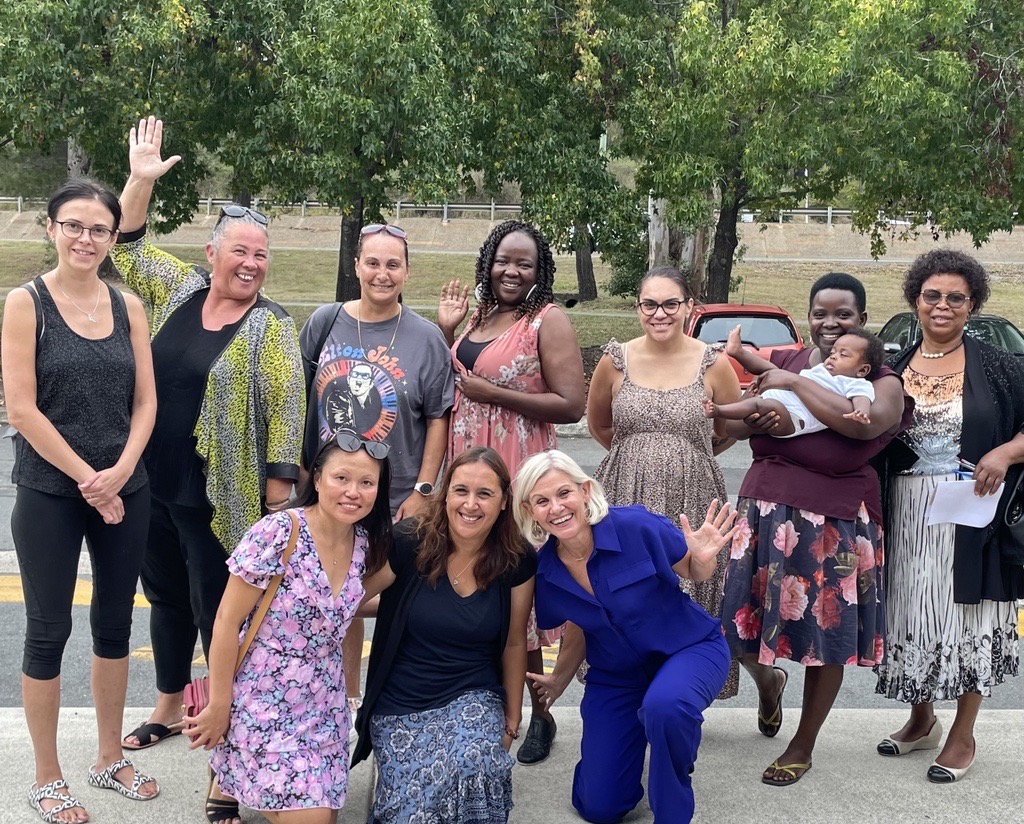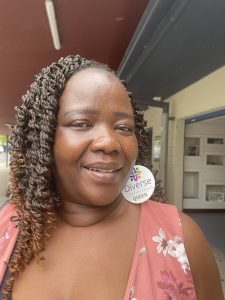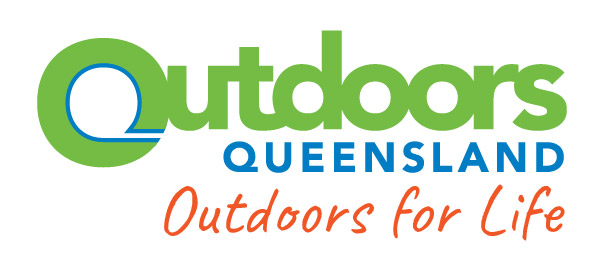
Culturally and Language Diverse
Women’s Group

Culturally and Language Diverse
Women’s Group
Culturally and Language Diverse Women’s Participation Group
Prior to speaking with the CALD group, consultation with various health, settlement and refugee groups took place. The over-arching topic was “What are the special considerations an outdoor organisation may need to make when diversifying their participation base?”
Sadly, the common report was that many people of diverse cultures felt unsafe walking or attending outdoor spaces. They were often yelled at, racially abused and even attacked. What everyone wanted was safe places and respect.
 The Logan Community hub was bubbling along busily, food was being prepped, children played, smiles, hugs and laughter created happy chaos.
The Logan Community hub was bubbling along busily, food was being prepped, children played, smiles, hugs and laughter created happy chaos.
I meet Rose Karlo, a woman of presence. Rose is speaking to the women about settlement today. Her earrings are her business cards. Rose exudes intelligence, entrepreneurship and determination. I ponder that Rose is the person many an outdoor organisation need.
As we speak, Angela bounds along, her eyes and smile infectious, her energy endless. Angela Leo is the founder of Kicking it at Kingston. Her front yard has been turned in to a marketplace where people swap and gift everything imaginable. It has become a meeting place for the community, particularly for those new refugees that are still too afraid to face the shopping centres. At Angela’s they are not judged, their children are welcome. The sense of community is enormous. Angela exudes enthusiasm as she talks about her love for getting people outside, particularly for their mental health, stating “I’m always posting or messaging – let’s go down the creek or I’m over this dry weather, who’s coming around for a rain dance under the sprinkler! There’s always lots of smiles”. Angela’s front yard has become a place of welcoming, solace and safety, especially for those that are away from their homes, family, culture and loved ones. At one-point last week over 50 people visit her front yard. Angela answers the obvious questions about security. “We have 3 values: – that we share, we are responsible, and we respect the space and each other. We have never had an issue”.
 The room is full of women from all over the world. The clothing they wear is beautiful, reflective of their homeland, their culture. The first words of the meeting are an Acknowledgement of Country. It is heartfelt and said with gratitude. The rest of the women nod, this group understands the importance of culture.
The room is full of women from all over the world. The clothing they wear is beautiful, reflective of their homeland, their culture. The first words of the meeting are an Acknowledgement of Country. It is heartfelt and said with gratitude. The rest of the women nod, this group understands the importance of culture.
The session is a journey of hope, difficulties, sadness, anger, disappointment, cultural shock, loneliness and struggles regarding basic needs. One woman’s story is particularly harrowing, we feel the room sink. Fariha, a woman in a magnificent gold hijab who has been very quiet, steps in. What follows is one of the most inspiring speeches and calls to actions that I have heard. This is a woman who has risen through adversity, worked hard and smart. She has engaged others on her journey and empowered refugee women to become financially independent. Fariha paid for her children to attend university, owns her own business and home. If ever a sporting organisation needed a coach to inspire them, Fariha’s the person!
As I begin to speak about Outdoors for Life, I wonder how I will be received after such significant conversation. To my relief the women are animated as they talk about how much they love getting outdoors and the importance of the outdoors for their mental health. Their interest in what is available as an outdoor activity is as diverse as the cultures in the room. We talk about the cost of activities, what is available for free or low cost (two of the women have 8 children each). Hiking and exploring their surroundings is very much of interest. I address the concerns that had been raised regarding safety. Women of some cultures represented are regularly targeted with racist taunts and even physically threatened. We talked about forming a walking group that walks before or after the meeting. There is a lovely bushwalk along the creek at the community centre.
“Jenny” from Ukraine and Russia listens intently to her translating app. She is smiling as she translates our conversation. Jenny looks like a hiker, fit and in training clothes. We learn that she loves hiking and led a very active life where she lived on the border between Ukraine and Russia. Her family are split, living between the warring countries. Jenny excitedly sends messages talking about how important getting outdoors is. The new hike leader has been found!
The following week I check in with some of the women. I haven’t stopped thinking of them, they have inspired me to be better, do more, complain less. Proudly they tell me they have been walking together. Outdoors for Life has just taken on a much greater meaning.
By Fiona Coppin
Culturally and Language Diverse Women’s Participation Group
Prior to speaking with the CALD group, consultation with various health, settlement and refugee groups took place. The over-arching topic was “What are the special considerations an outdoor organisation may need to make when diversifying their participation base?”
Sadly, the common report was that many people of diverse cultures felt unsafe walking or attending outdoor spaces. They were often yelled at, racially abused and even attacked. What everyone wanted was safe places and respect.
The Logan Community hub was bubbling along busily, food was being prepped, children played, smiles, hugs and laughter created happy chaos.
I meet Rose Karlo, a woman of presence. Rose is speaking to the women about settlement today. Her earrings are her business cards. Rose exudes intelligence, entrepreneurship and determination. I ponder that Rose is the person many an outdoor organisation need.

As we speak, Angela bounds along, her eyes and smile infectious, her energy endless. Angela Leo is the founder of Kicking it at Kingston. Her front yard has been turned in to a marketplace where people swap and gift everything imaginable. It has become a meeting place for the community, particularly for those new refugees that are still too afraid to face the shopping centres. At Angela’s they are not judged, their children are welcome. The sense of community is enormous. Angela exudes enthusiasm as she talks about her love for getting people outside, particularly for their mental health, stating “I’m always posting or messaging – let’s go down the creek or I’m over this dry weather, who’s coming around for a rain dance under the sprinkler! There’s always lots of smiles”. Angela’s front yard has become a place of welcoming, solace and safety, especially for those that are away from their homes, family, culture and loved ones. At one-point last week over 50 people visit her front yard. Angela answers the obvious questions about security. “We have 3 values: – that we share, we are responsible, and we respect the space and each other. We have never had an issue”.

The room is full of women from all over the world. The clothing they wear is beautiful, reflective of their homeland, their culture. The first words of the meeting are an Acknowledgement of Country. It is heartfelt and said with gratitude. The rest of the women nod, this group understands the importance of culture.
The session is a journey of hope, difficulties, sadness, anger, disappointment, cultural shock, loneliness and struggles regarding basic needs. One woman’s story is particularly harrowing, we feel the room sink. Fariha, a woman in a magnificent gold hijab who has been very quiet, steps in. What follows is one of the most inspiring speeches and calls to actions that I have heard. This is a woman who has risen through adversity, worked hard and smart. She has engaged others on her journey and empowered refugee women to become financially independent. Fariha paid for her children to attend university, owns her own business and home. If ever a sporting organisation needed a coach to inspire them, Fariha’s the person!
As I begin to speak about Outdoors for Life, I wonder how I will be received after such significant conversation. To my relief the women are animated as they talk about how much they love getting outdoors and the importance of the outdoors for their mental health. Their interest in what is available as an outdoor activity is as diverse as the cultures in the room. We talk about the cost of activities, what is available for free or low cost (two of the women have 8 children each). Hiking and exploring their surroundings is very much of interest. I address the concerns that had been raised regarding safety. Women of some cultures represented are regularly targeted with racist taunts and even physically threatened. We talked about forming a walking group that walks before or after the meeting. There is a lovely bushwalk along the creek at the community centre.
“Jenny” from Ukraine and Russia listens intently to her translating app. She is smiling as she translates our conversation. Jenny looks like a hiker, fit and in training clothes. We learn that she loves hiking and led a very active life where she lived on the border between Ukraine and Russia. Her family are split, living between the warring countries. Jenny excitedly sends messages talking about how important getting outdoors is. The new hike leader has been found!
The following week I check in with some of the women. I haven’t stopped thinking of them, they have inspired me to be better, do more, complain less. Proudly they tell me they have been walking together. Outdoors for Life has just taken on a much greater meaning.
By Fiona Coppin
